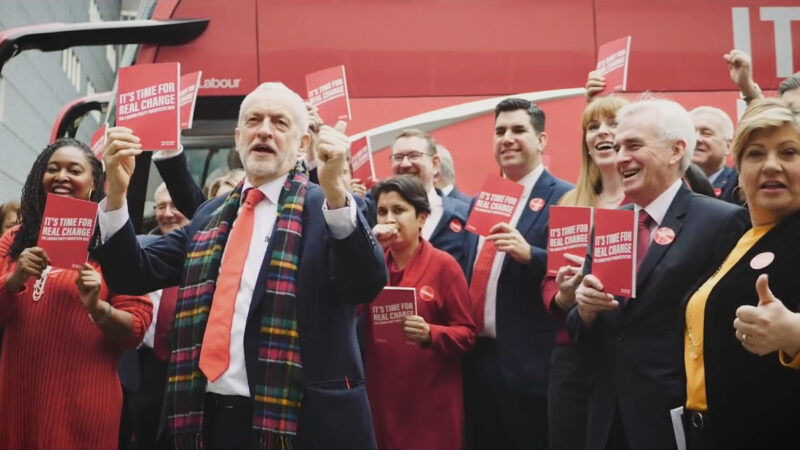
It is five weeks since Labour’s devastating election defeat and the party’s attention has already moved on. In a way, that’s a good thing, because a leadership contest marks a fresh beginning. But it has its downsides too, as there is unavoidable tension between honest post-mortem and popularity contest.
Before the leadership candidates set out their policy programmes, they need to ask not just why Labour’s 2019 platform was rejected but also whether it was the right agenda for the country in the first place. So far, figures from across the Labour party have said the manifesto contained individually popular policies but that it was over-loaded and lacked a narrative thread. That doesn’t go far enough. The truth is that Labour’s 2019 policy programme was profoundly flawed.
Activists who knocked on doors know that voters literally laughed at Labour’s election promises, with the party unveiling one incoherent electoral bribe after another. Labour failed to present any reasoned, intellectual case for the free broadband that people were already happy to pay for, for the huge cuts in rail fares for affluent season ticket holders, or for the massive cash handouts for women born in the 1950s.
These were all examples of policies that benefited people with high incomes more than families in poverty and this was a critical weakness in Labour’s overall electoral programme. The party offered a huge expansion in state collectivism and universalism. But it offered too little in the fight against inequality, save for raising the taxes of the very rich.
In other words, Labour reversed the decision it made in the mid-20th century to prioritise egalitarianism over statism. Extraordinary projections from the Resolution Foundation showed that after four years of a Labour government child poverty would have been no lower than it is today. The Institute for Fiscal Studies suggested that Labour’s medium-term spending plans were less redistributive than those of the Liberal Democrats, as was also the case in 2017.
The egalitarianism Labour did offer came in the shape of economic reforms that were highly speculative and would have taken years to reap returns. Labour’s plans to increase workers’ power over businesses, expand non-shareholder ownership models and launch a green industrial revolution in disadvantaged areas included many good ideas. But over a single parliament they would have done next to nothing for living standards or for people’s sense of control over their own lives.
The party’s plans for the welfare state would have helped more. There were areas where Labour’s universalist proposals would have made a real difference to life chances, especially its offer of free childcare, youth services and further education for adults. But elsewhere the extra statism – and especially so many nationalisations in one go – seemed unconnected to everyday life.
On Saturday, hundreds of delegates and dozens of Labour politicians will meet at the FEPS-Fabian New Year Conference to discuss what the party must do differently to win. An assessment of the party’s policy offer will be at the heart of the debate.
This time, Labour’s programme just had too little of those Fabian virtues of practicality, precision and empiricism. There was so much of it, it would have been impossible to deliver in a single term. The detail was often flaky. And the ideologically-inspired solutions often addressed problems people did not know they had.
On everything from nationalising broadband to a four-day-week, the party should have spent years examining the evidence, debating with the public and road-testing solutions with a wide cross-section of experts. Instead, Labour’s conversation took place only within a comfortable activist echo chamber, often leaving traditional Labour voters bewildered and scornful at the results.
Take the four-day week. After a decade when hourly wages and productivity have barely risen, how did the party get to a place where it was publicly calling for future pay rises to be translated into shorter hours, not higher take-home wages? And how did it set out plans that were so half-baked that the Tories could present a Labour policy as a threat to the NHS?
Individual voters didn’t engage with all this policy detail. But they got enough of it to smell a rat. Unlike in 2017, Labour’s manifesto was a failure because it was a programme for the movement not the country. And it prioritised the ideology of the big state over practical power and prosperity for people, in the here and now. Once this leadership contest is over, on policy, the party must start again.
The Labour Party 2019 manifesto will be debated in a special session on Saturday at the FEPS-Fabian New Year Conference in London. For more information, visit www.fabians.org.uk.



More from LabourList
NEC member warns of CLP ‘resentment’ over twinning and cut-off IT access
‘A black hole, CQC woes, prison crisis: Tories get taste of their own medicine’
Labour NEC elections: ‘Councillors must have a voice and be listened to’